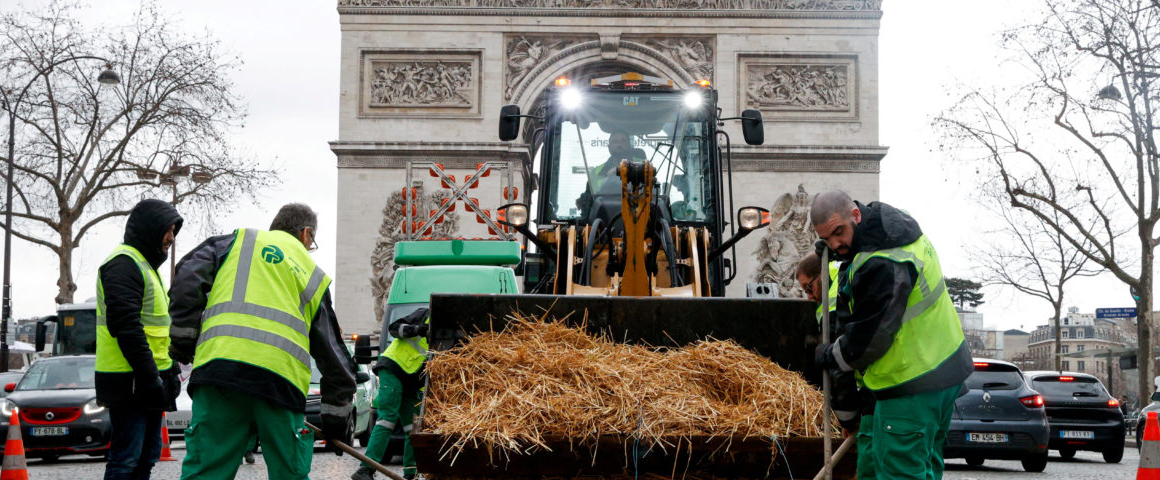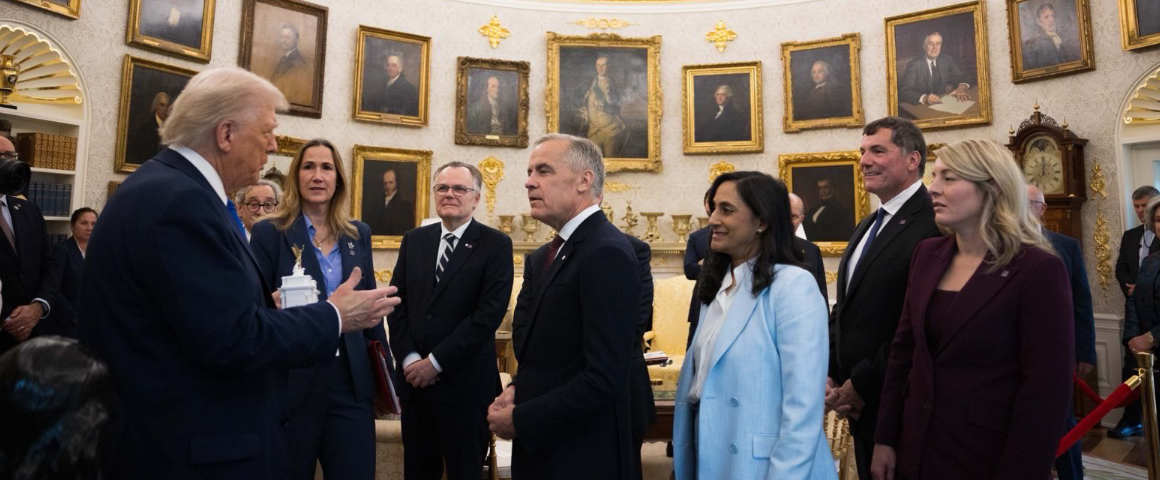By Jad Kabbanji and Hugo Barral
For several weeks now, rural areas across Europe have been the sites of unrest against conditions of deregulation and rapidly rising inflation. The war in Ukraine has exacerbated a situation of unfair competition in the European Union, which was introduced through the common market and especially the Common Agricultural Policy (CAP).
In France, protests reached a climax on January 29 when an unprecedented movement of farmers surrounded the capital.
How did this come about, and what are the prospects for this heterogeneous movement bringing together farming organizations which have many diametrically opposed positions?
Small farmers at the forefront
Many farms in France are small, and this is especially true in the South-West where mobilization has been strongest. For example, the regions of Occitanie and Nouvelle-Aquitaine had 83,300 farms in 2020, representing 20 percent of the farms in the entire country. But in recent years, tens of thousands of these farms have been forced to close. The number of micro and small farms is on a downward trend, falling by 75,900 between 2010 and 2020, while the average area of farmland in use has increased by 14 hectares over the same period. This is an indication of material conditions, which are deteriorating as much in the countryside as in the cities.
The demands of the farmers’ movement leave no room for doubt that the main question is one of income and working conditions. The operators of these small farms are largely self-employed, and many of them have meagre incomes or even operate at a deficit. They are caught in a vice between the rates and prices imposed by supermarkets and the CAP, which massively favour large-scale farming, and the free trade promoted by the European Union’s unbridled liberalism. One manifestation of this liberal drift was the 2016 signing of the Comprehensive Economic and Trade Agreement (CETA) between the European Union and Canada, which drastically reduces tariff and non-tariff barriers to trade.
While large-scale farmers are primarily concerned with the cost of labour, small farmers are more squeezed by the price of inputs.
The role of the far-right
Although the protest movement was initiated by small farmers, representatives from conservative French unions like the Fédération nationale des syndicats d’exploitants agricoles (FNSEA – National Federation of Farmers’ Unions) and the Coordination rurale (CR – Rural Coordination) were quick to take control.
These unions, which have figured significantly in the departmental chambers of agriculture since the 2019 elections, are positioned politically to the right and, in the case of CR, even to the extreme right. They are the privileged allies of employers who profit from precarious employment, and account for nearly 80 percent of seasonal or unregistered jobs. An example is Serge Bousquet-Cassagne, a leading member of CR who has become a media figure during the mobilization, who calls for withdrawing the minimum wage to “put the French back to work” and actively supports water reservoir schemes which benefit large farms. They advocate an “identity-based” protectionism which is linked to the country’s far right, although they conveniently soften this position when it comes to unregistered migrant labour.
The government of new French Prime Minister Gabriel Attal, already unpopular on public education issues, decided within days to play a mediating role. However, following announcements by the FNSEA and CR in February that they were withdrawing from the protests, the government failed to propose any significant measures and offered only a modest aid package rather than establishing a floor price on products to guarantee farmers’ incomes.
Most left-leaning parties have limited their analysis of the protest movement to an assessment of its main characters, failing to consider the conflict between capital and labour which runs through all the contradictions in French agriculture. Contemptuous statements from the European Greens are explicit in this respect. La France Insoumise, the country’s leading left-wing party, is content with agitational statements in the National Assembly and on social media and is unlikely to contribute any extraordinary action.
On the other hand, the French Communist Party (PCF), which is historically opposed to European Union treaties, has shown its support and joined the mobilization rally points. The Confédération générale du travail (CGT – General Confederation of Labour) has also joined the movement, encouraging its members to take part in the mobilizations and announcing several dates for demonstrations. This is an echo the massive social protests in France last year, which farmers consistently supported by joining picket lines.
The undeniable impact of the Ukraine war
The current revolt in the countryside cannot be understood without considering the war in Ukraine, the consequences of which have significantly worsened farmers’ working conditions. Duties on most agricultural products imported from Ukraine into the EU were reduced to zero in 2016. As a result, a kilogram of French chicken filet costs 7 euros at the main wholesale food market in Paris, but a kilogram of chicken filet from Ukraine can be bought at the same market for around 3 euros.
Far from remedying this situation, the European Commission (which is responsible for customs tariffs) proposed at the end of January to extend for a further year the suspension of import duties and quotas on Ukrainian exports to the EU. Although the FNSEA is obliged to respond to farmers’ dissatisfaction with imports from Ukraine, its President Arnaud Rousseau stated on January 31 “that Europe must lend its support to a people fighting for its freedom, its borders and its model.”
As the war in Ukraine enters its third year, the EU is determined more than ever to forestall peace negotiations and is doubling down on a war of attrition. EU leaders recently agreed to provide Ukraine with a further 50 billion euros in financial aid up to 2027 and have begun negotiations for its accession to the European Union. This blatant warmongering policy is supported by the agricultural monopolies, in clear contradiction with the interests of small and medium-sized farmers.
On top of this, the full privatization of Ukrainian farmland for the benefit of these same multinationals lies at the heart of the current battle being waged, through Ukraine, by the EU and NATO powers against Russia.
It is in the interests of working people in both urban and rural areas to demand immediate peace negotiations and to withdraw from free trade treaties, thereby thwarting imperialist plans which are leading directly towards all-out war.
Support socialist media!
If you found this article useful, please consider donating to People’s Voice or purchasing a subscription so that you get every issue of Canada’s leading socialist publication delivered to your door or inbox!
For over 100 years, we have been 100% reader-supported, with no corporate or government funding.




